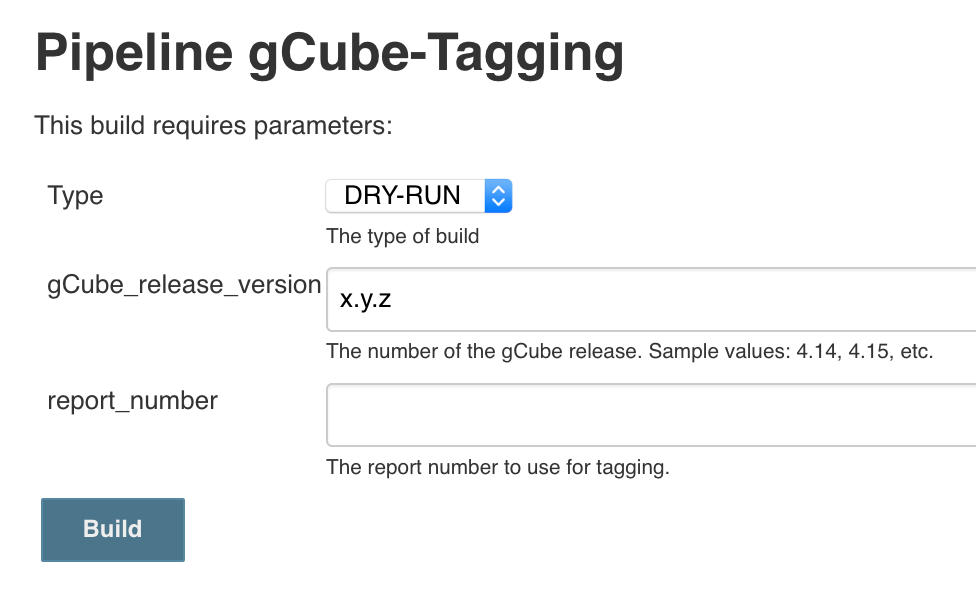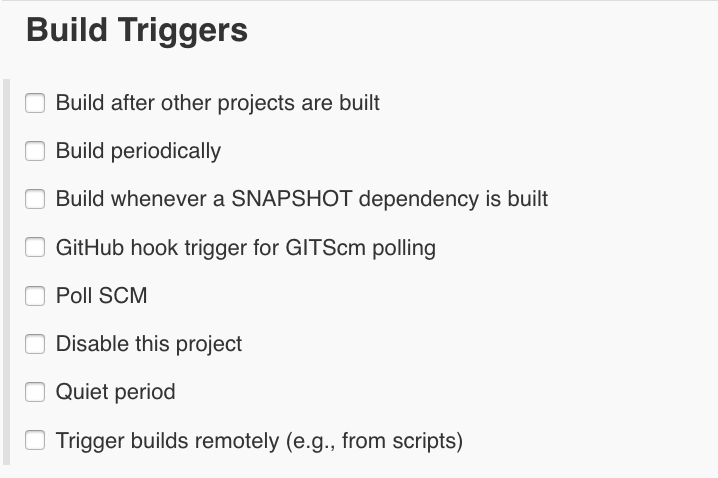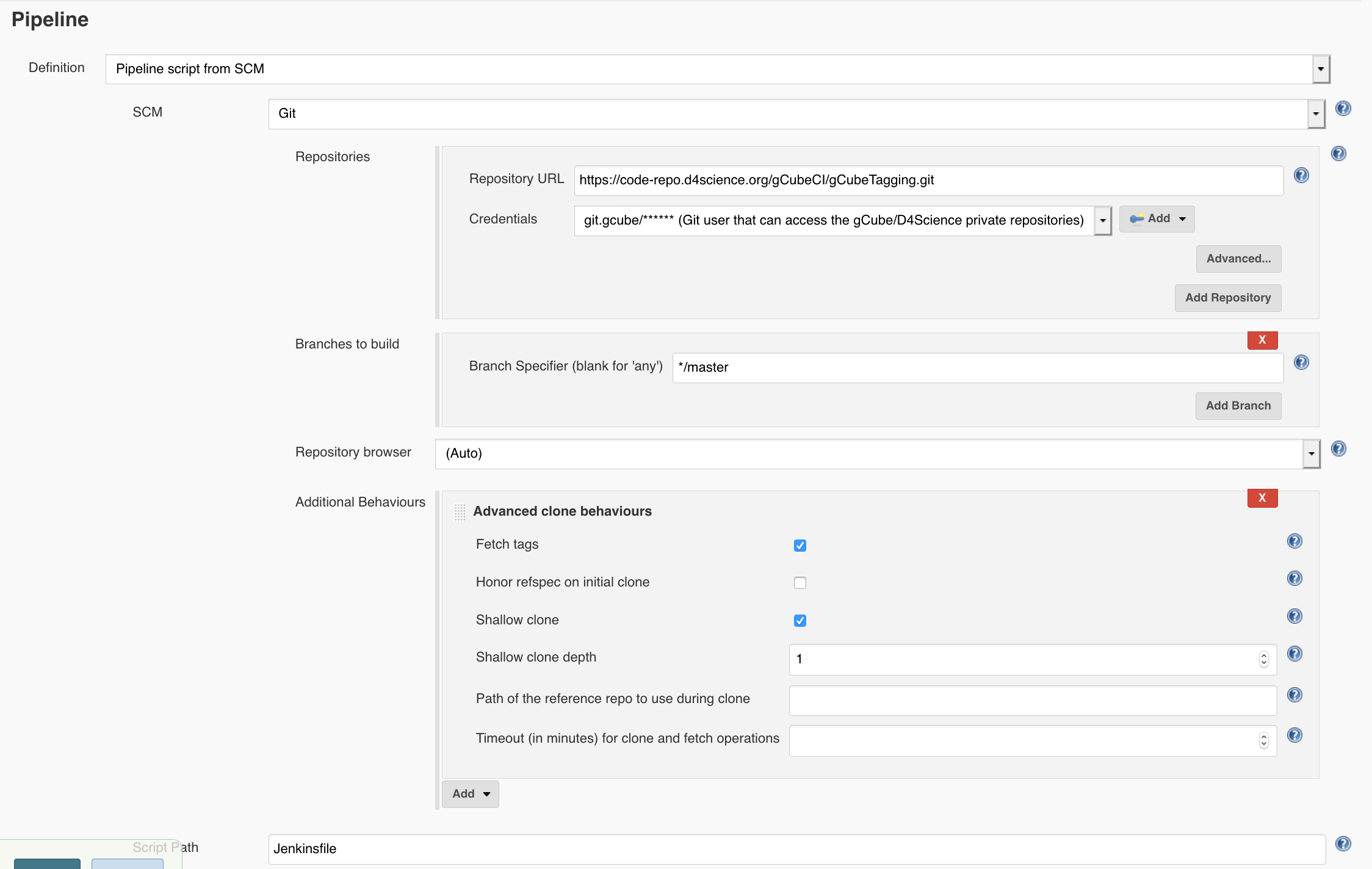Continuous Integration: Tagging Jenkins Pipeline
Contents
gCubeTagging Pipeline Project
In gCube we use a Pipeline to tag all the repositories forming a gCube Release. The pipeline project is available at: https://jenkins.d4science.org/job/gCube-Tagging/
Parameters
Triggers
No triggers are defined because the pipeline is expected to be manually launched by the Release Manager:
It can be changed according to the release needs and the availability of a sufficient number of dedicate agents in Jenkins.
Git
The pipeline is maintained in a Git repository. This section connects the project to the Git repository.
Jenkins Pipeline Execution
Starting from the following sample commits report available at https://code-repo.d4science.org/gCubeCI/gCubeRelease/raw/branch/master/releases/4.10.0/build_commits.12.csv:
GroupID,ArtifactID,Version,SCM URL,Build Number,Distribution URL,Filename,Packaging org.gcube.tools,strategy-forward,1.1.0,https://code-repo.d4science.org/Playground/MergeStrategyFastForward,66f5fd1da37229615268955eeaf46870dd4d6576,...
We run the pipeline with the following parameters:
- Type = TAG
- gcube_release_number = 4.10.0
- report_number = 12
On the jenkins console, we can see the messages logging the tagging activity on the repository:
On gitea, we can appreciate that the tag has been pushed;
On a local cloned repo, we can fetch the new tag:





